第85章 Appendix I:Production,Consumption,Distribution,Exc
It is moreover wrong to consider society as a single subject,for this is a speculative approach.With regard to one subject,production and consumption appear as phases of a single operation.Only the most essential point is emphasised here,that production and consumption,if considered as activities of one subject or of single individuals,appear in any case as phases of one process whose actual point of departure is production which is accordingly the decisive factor.Consumption,as a necessity and as a need,is itself an intrinsic aspect of productive activity;the latter however is the point where the realisation begins and thus also the decisive phase,the action epitomising the entire process.An individual produces an object and by consuming it returns again to the point of departure:he returns however as a productive individual and an individual who reproduces himself.Consumption is thus a phase of production.
But in society,the relation of the producer to the product after its completion is extrinsic,and the return of the product to the subject depends on his relations to other individuals.The product does not immediately come into his possession.Its immediate appropriation,moreover,is not his aim,if he produces within society.Distribution ,which on the basis of social laws determines the individual's share in the world of products,intervenes between the producer and the products,i.e.,between production and consumption.
Is distribution,therefore,an independent sector alongside and outside production?b.[Production and Distribution]When looking through the ordinary run of economic works,one's attention is attracted forthwith by the fact that everything is mentioned twice,e.g.,rent,wages,interest and profit figure under the heading distribution,while under the heading of production land,labour and capital appear as factors of production.As to capital,it is evident from the outset that this is counted twice,first as a factor of production,and secondly as a source of income;i.e.,as a determining and determinate form of distribution.
Interest and profit appear therefore in production as well,since they are forms in which capital increases and grows,and are thus phases of its production.As forms of distribution,interest and profit presuppose capital as a factor of production.They are forms of distribution whose pre-condition is the existence of capital as a factor of production.They are likewise modes of reproduction of capital.
Wages represent also wage-labour,which is examined in a different section;the particular function that labour performs as a factor of production in the one case appears as a function of distribution in the other.If labour did not have the distinct form of wage-labour,then its share in the product would not appear as wages,as for instance in slavery.Finally rent --if we take the most advanced form of distribution by which landed property obtains a share in the product-presupposes large-scale landed property (strictly speaking,large-scale agriculture)as a factor of production,and not land in general;just as wages do not presuppose labour in general.
The relations and modes of distribution are thus merely the reverse aspect of the factors of production.An individual whose participation in production takes the form of wage-labour will receive a share in the product,the result of production,in the form of wages.The structure of distribution is entirely determined by the structure of production.Distribution itself is a product of production,not only with regard to the content,for only the results of production can be distributed,but also with regard to the form,since the particular mode of men's participation in production determines the specific form of distribution,the form,in which they share in distribution.
It is altogether an illusion to speak of land in the section on production,and of rent in the section on distribution,etc.
Economists like Ricardo who are mainly accused of having paid exclusive attention to production,have accordingly regarded distribution as the exclusive subject of political economy,for they have instinctively treated the forms of distribution as the most precise expression in which factors of production manifest themselves in a given society.
To the single individual distribution naturally appears as a social law,which determines his position within the framework of production,within which he produces;distribution thus being antecedent to production.
An individual who has neither capital nor landed property of his own is dependent on wage-labour from his birth as a consequence of social distribution.
But this dependence is itself the result of the existence of capital and landed property as independent factors of production.
When one considers whole societies,still another aspect of distribution appears to be antecedent to production and to determine it,as though it were an ante-economic factor.A conquering nation may divide the land among the conquerors and in this way imposes a distinct mode of distribution and form of landed property,thus determining production.Or it may turn the population into slaves,thus making slave-labour the basis of production.
Or in the course of a revolution,a nation may divide large estates into plots,thus altering the character of production in consequence of the new distribution.Or legislation may perpetuate land ownership in certain families,or allocate labour as a hereditary privilege,thus consolidating it into a caste system.In all these cases,and they have all occurred in history,it seems that distribution is not regulated and determined by production but,on the contrary,production by distribution.